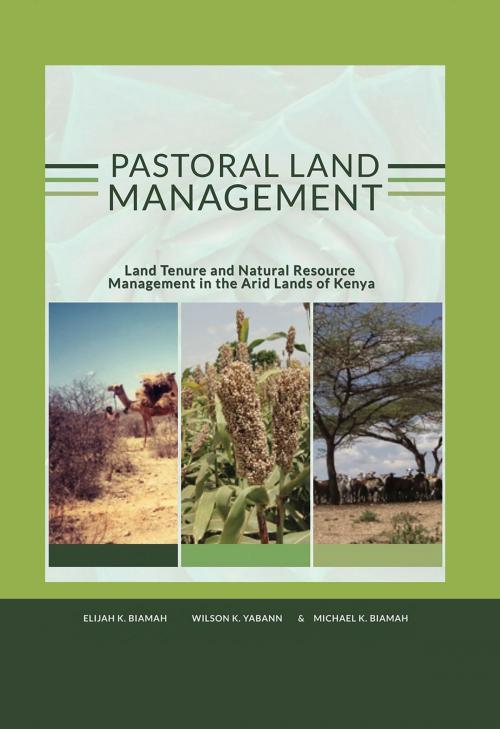Pastoral land management
Land Tenure and Natural Resource Management in the Arid Lands Of Kenya
Nonfiction, Science & Nature, Technology, Engineering, Environmental, Travel, Africa, Agriculture & Animal Husbandry| Author: | Michael K. Biamah, Wilson K. Yabann, Elijah K. Biamah | ISBN: | 9781911412397 |
| Publisher: | PublishDrive | Publication: | July 9, 2017 |
| Imprint: | Dolman Scott Publishing | Language: | English |
| Author: | Michael K. Biamah, Wilson K. Yabann, Elijah K. Biamah |
| ISBN: | 9781911412397 |
| Publisher: | PublishDrive |
| Publication: | July 9, 2017 |
| Imprint: | Dolman Scott Publishing |
| Language: | English |
In the arid lands of Kenya, the social structure system associated with traditional pastoralism has evolved useful mechanisms for achieving sustainable resource utilization within fragile dryland environments. The sustainability of traditional pastoralism in Kenya is no longer feasible due to the increasing pressure on a shrinking resource base. This uncertainty with the sustainability of this traditional life style, calls for a radical shift in thinking from traditional to commercial pastoralism. Commercial pastoralism allows for the emergence of dynamic pastoralism which adapts quickly to technological changes and evolving market conditions in a fast changing pastoral environment. Whereas this futuristic form of pastoralism must recognize pastoral communities as legal entities and accord them the rights of control and disposal or transfer, it should also bestow the rights of access and use on individual pastoralists. The individualization of the right of land disposal or transfer in non-enlightened pastoral communities has led to the emergence of destitution and poverty in pastoral areas of Kenya. This book publication provides valuable information on emerging issues and options on pastoral land management in Kenya. It is based on a three year study on Land Tenure and Natural Resource Management in the Arid Lands of Kenya. It also does provide the requisite information for the formulation of a policy and legal framework on sustainable pastoral land management in Kenya.
In the arid lands of Kenya, the social structure system associated with traditional pastoralism has evolved useful mechanisms for achieving sustainable resource utilization within fragile dryland environments. The sustainability of traditional pastoralism in Kenya is no longer feasible due to the increasing pressure on a shrinking resource base. This uncertainty with the sustainability of this traditional life style, calls for a radical shift in thinking from traditional to commercial pastoralism. Commercial pastoralism allows for the emergence of dynamic pastoralism which adapts quickly to technological changes and evolving market conditions in a fast changing pastoral environment. Whereas this futuristic form of pastoralism must recognize pastoral communities as legal entities and accord them the rights of control and disposal or transfer, it should also bestow the rights of access and use on individual pastoralists. The individualization of the right of land disposal or transfer in non-enlightened pastoral communities has led to the emergence of destitution and poverty in pastoral areas of Kenya. This book publication provides valuable information on emerging issues and options on pastoral land management in Kenya. It is based on a three year study on Land Tenure and Natural Resource Management in the Arid Lands of Kenya. It also does provide the requisite information for the formulation of a policy and legal framework on sustainable pastoral land management in Kenya.















